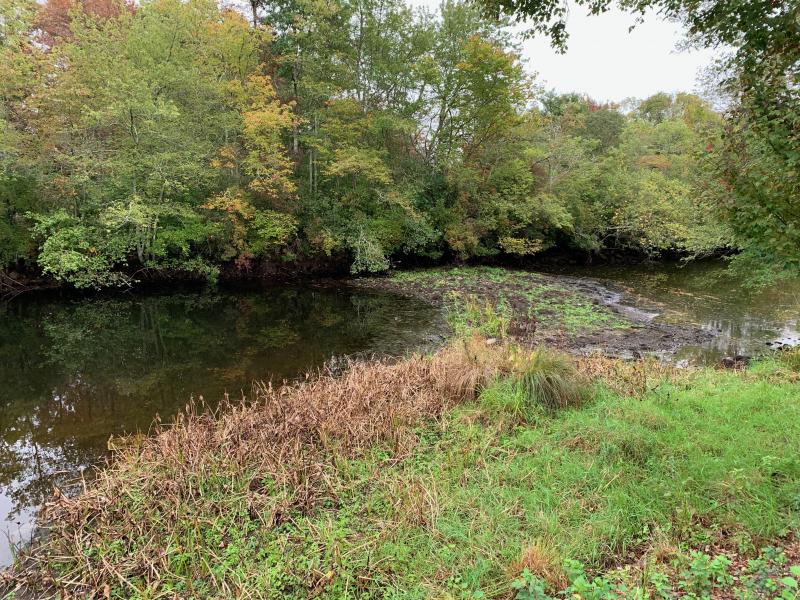Drought threatens Tri-Town water supply, ecosystems
Rochester Selectman Woody Hartley, an avid cranberry farmer, said he doesn’t tend to use as much water on his farm, but many others aren’t in such an enviable position.
“They don’t know when they’re going to be able to pick those cranberries,” Hartley said. “Or if they’re going to be able to pick those cranberries.”
Russ Keeler, treasurer at the Rochester Land Trust, said it’s the biggest drought he’s seen in his 20 years of living in the town.
The dry weather makes it easier for land trust volunteers to carve out trails and maintain the mostly wooded property without slogging through mud. But, he said, the drought has dried up ponds across Rochester.
He also has a hayfield at home. And like the cranberry harvest, this year’s second hay cutting could fall victim to the dry weather.
Parts of Rochester source water from Marion and Mattapoisett, but many homes draw water from wells.
And when all three towns draw from the same water table, well overuse becomes a shared issue.
“Outside of asking people to conserve, there’s not much we can do about people with private wells,” said Rochester Water Commissioner Fred Underhill.
But in some ways, Marion has benefited from the drought. An uptick in summer water usage by residents watering their lawns and gardens brought in more money for the town’s water and sewer enterprise funds, which help pay down the $10 million debt accrued by current water and sewer projects.
“We’re such a small town to be running our own water,” Select Board Vice Chair John Waterman said at a Sept. 22 Water and Sewer Commissioners meeting.
Marion is trying to bring three out-of-use wells back online with a project to replace an old water treatment house. This would nearly double the current water production capacity, and provide backups in case any wells in Marion fail or dry out.
Going west, the Mattapoisett River is 9.5 inches below normal, Town Water Superintendent Henri Renauld said. The river’s depth affects the aquifers and lowers the water table.
Renauld helps oversee the Mattapoisett River Valley Water District, which serves Mattapoisett and parts of Marion and Rochester. He said water levels in the eight wells of the district are now lower than usual at this time of year.
On top of this, Renauld said water usage was up because of covid. People are home more and are also washing their hands more frequently.
Renauld said he is “hoping that the rain coming this week will alleviate the drought.”
Mattapoisett currently has a voluntary water restriction to limit non-essential usage. Odd house numbers water lawns on odd days, even houses water on even days. Anyone can water on the last day of the month. Watering is limited to morning and evening hours.
If the rain doesn’t help, Mattapoisett may have to look into mandatory water restrictions.
Tony Williams, director of monitoring programs at the Buzzards Bay Coalition, said volunteers in its River Instream Flow Stewards program who monitor the Mattapoisett Rivers said there isn’t enough water to monitor.
This causes fish to pile up in small pools of water in the river, making them prone to predators.
The life cycle of juvenile herring in the river may also be affected.
In the spring, male herring spawn at the river’s source in Snipatuit Pond in Rochester. Around this time, they’re supposed to swim back to the bay, Williams said. But now that may not be possible.
Elsewhere, Mattapoisett Land Trust President Mike Hugenin said the community is having a “tremendously” dry year.
“If we don’t get some rain pretty soon, we’re going to have a pretty tough winter,” Hugenin said.
As a solution to all of this, Renauld said residents should participate in the town’s voluntary watering restriction program.
Residents are asked to water their lawns according to their house number.
Residents are also asked to water only between 6 and 8 a.m., and 6 and 8 p.m.















